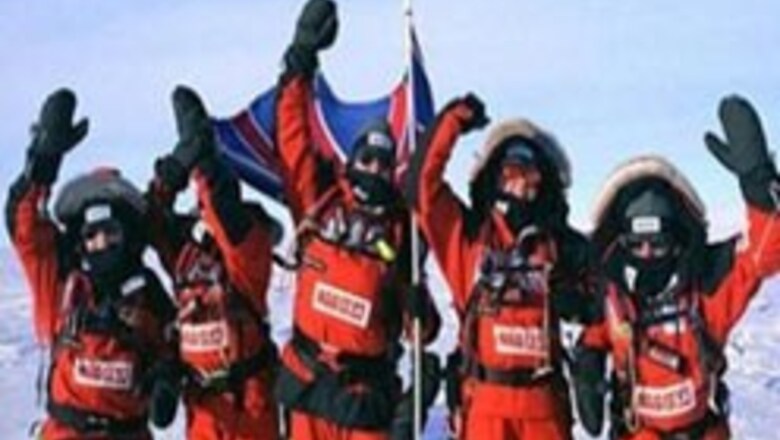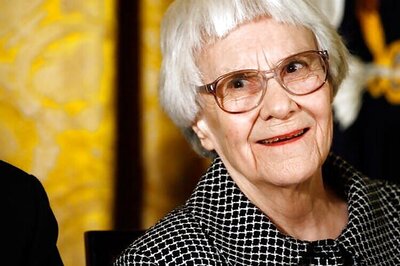
views
London: Laid neatly on a deserted London office floor in parallel lines designed to meet at the North Pole, 60 days' worth of energy-charged packages wait for Rosie Stancer.
Each contains roughly five and half thousand calories in various forms, including fudge from the Prince of Wales's Highgrove estate.
Together they are designed to fuel the diminutive 47-year-old Briton across land, ice and through water in her epic bid to become the first woman to journey alone to both poles.
Exploration runs in Stancer's bloodline. Her grandfather Earl Granville was scheduled to take part in Captain Scott's doomed 1910-12 Antarctic expedition.
But shortly before the party left, he received a wire informing him he was too tall to get into the tent and would also require too large a share of the rations.
Her husband's grandfather went on Ernest Shackleton's trans-Antarctic expedition in 1914-17.
The physical challenge is almost unimaginable. Unlike the Antarctic, a frozen land mass, the Arctic is a frozen sea.
Where the ice breaks, despite air temperatures of minus 40 degrees celsius, Stancer will swim in a bright yellow suit which looks pitifully inadequate for the purpose.
At night she will melt snow and ice for her reconstituted meal. Then there is the threat of polar bears, startled by an unexpected intruder in their deserted habitat.
Incredible Journeys
Stancer's incredible journeys began in 1997 when she joined the first all-women's team on an expedition to the South Pole In 2003-4 she walked alone over the 700 nautical miles to the South Pole in just under 44 days.
For her latest adventure, Stancer has been training for 18 months, with much of her work involving hauling tyres to replicate the strain of dragging sleds through the ice and snow.
"It's not so much about geographical exploration any more because we know what's at 90 degrees north," she said shortly before flying to Canada for two days after which she will undergo final training before starting the expedition at the beginning of March.
"It's really more about exploration within yourself, when you cross those boundary lines that you might normally set for yourself and I am going to cross way, way beyond them.
"You're very close to nature, or to God, the layers of crud and materialism that you build up around yourself in normal life fall away bit by bit."
Psychologically, the demands can exceed the physical stress. You wake up exhausted, said Stancer, and the tent is frozen with ice on the inside.
And because of the unstable floes, you may be further from your destination than you had been 24 hours earlier.
"The drive that it takes to get you out of your sleeping bag into the deep freeze that is your tent, I can't think about it. I just go into autopilot and get on with it,” Stancer said.
And the compensations? They come every night as she gets ready to prepare a meal of package food mixed with melted ice.
"The sound of the stove lighting, it lights and ignites and that to me is as good as the sound of a champagne cork,” said Stancer.

















Comments
0 comment